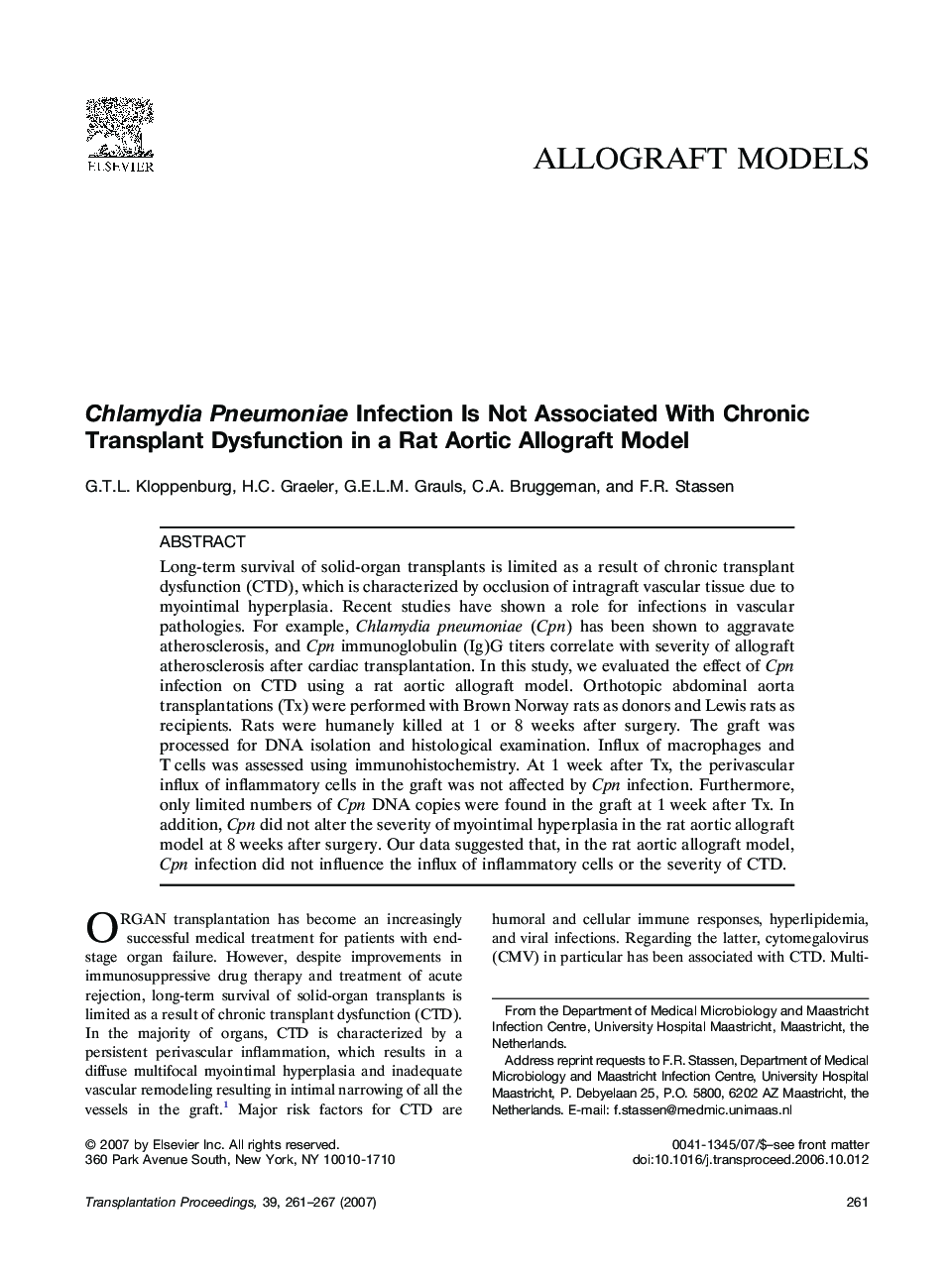| Article ID | Journal | Published Year | Pages | File Type |
|---|---|---|---|---|
| 4262955 | Transplantation Proceedings | 2007 | 7 Pages |
Long-term survival of solid-organ transplants is limited as a result of chronic transplant dysfunction (CTD), which is characterized by occlusion of intragraft vascular tissue due to myointimal hyperplasia. Recent studies have shown a role for infections in vascular pathologies. For example, Chlamydia pneumoniae (Cpn) has been shown to aggravate atherosclerosis, and Cpn immunoglobulin (Ig)G titers correlate with severity of allograft atherosclerosis after cardiac transplantation. In this study, we evaluated the effect of Cpn infection on CTD using a rat aortic allograft model. Orthotopic abdominal aorta transplantations (Tx) were performed with Brown Norway rats as donors and Lewis rats as recipients. Rats were humanely killed at 1 or 8 weeks after surgery. The graft was processed for DNA isolation and histological examination. Influx of macrophages and T cells was assessed using immunohistochemistry. At 1 week after Tx, the perivascular influx of inflammatory cells in the graft was not affected by Cpn infection. Furthermore, only limited numbers of Cpn DNA copies were found in the graft at 1 week after Tx. In addition, Cpn did not alter the severity of myointimal hyperplasia in the rat aortic allograft model at 8 weeks after surgery. Our data suggested that, in the rat aortic allograft model, Cpn infection did not influence the influx of inflammatory cells or the severity of CTD.
